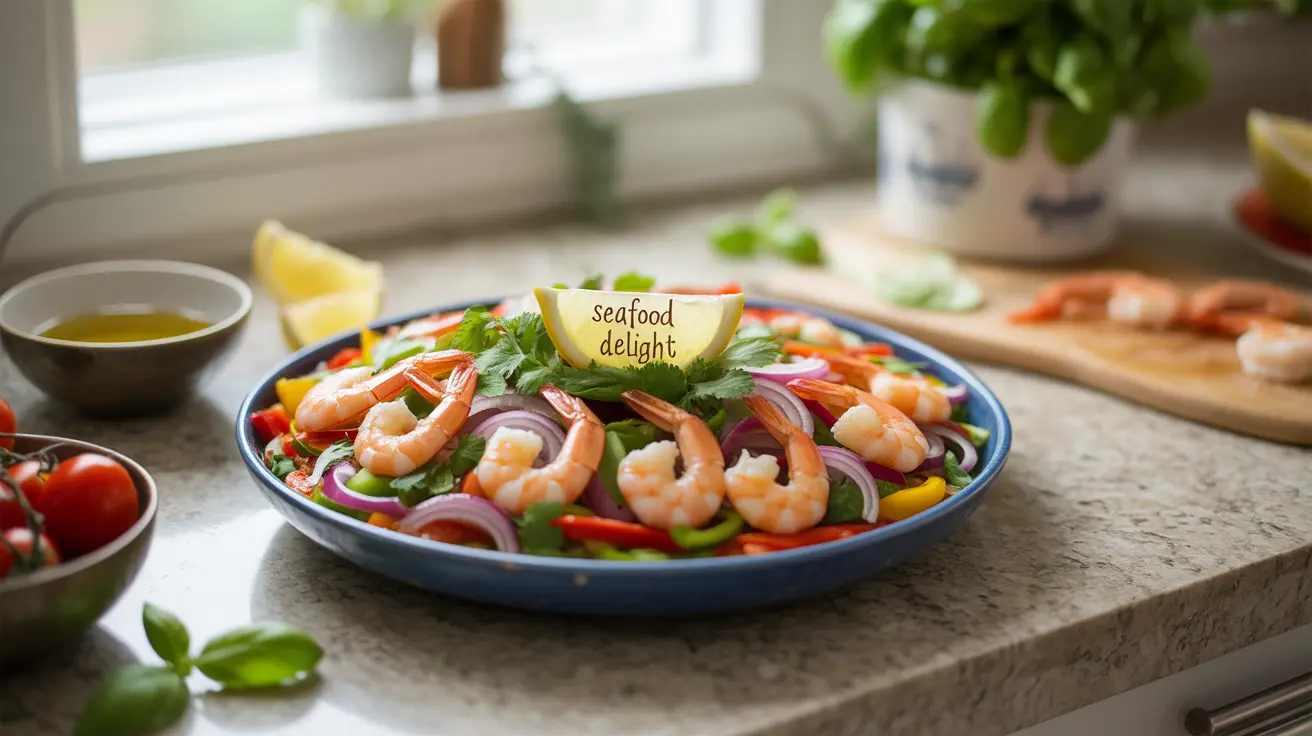Many people love shrimp for its delicate flavor and versatility in cooking, but questions often arise about its cholesterol content. With heart health being a primary concern for many Americans, it's important to understand the relationship between shrimp consumption and cholesterol levels.
In this comprehensive guide, we'll explore the facts about shrimp's cholesterol content, its overall impact on heart health, and how to make informed decisions about including this popular seafood in your diet.
The Truth About Shrimp's Cholesterol Content
Shrimp does contain a relatively high amount of dietary cholesterol, with about 161 milligrams in a 3-ounce serving. However, modern research has shown that the relationship between dietary cholesterol and blood cholesterol levels is more complex than previously thought.
What makes shrimp unique is its nutritional profile. Despite its cholesterol content, shrimp is:
- Low in total fat and saturated fat
- High in protein
- Rich in omega-3 fatty acids
- Excellent source of antioxidants
- Contains beneficial minerals like selenium and iodine
Understanding Dietary Cholesterol vs. Blood Cholesterol
Recent scientific evidence suggests that dietary cholesterol has less impact on blood cholesterol levels than once believed. The body actually produces most of its cholesterol naturally, and for most people, dietary cholesterol has minimal effect on blood cholesterol levels.
What matters more for heart health is the overall composition of your diet, particularly the types of fats you consume. Shrimp contains healthy fats and other beneficial nutrients that may actually support heart health.
Comparing Shrimp to Other Protein Sources
When compared to other animal protein sources, shrimp often proves to be a healthier choice:
- Lower in total fat than beef
- Contains fewer calories than chicken
- Higher in omega-3s than most land animals
- Lower in saturated fat than most meat options
Heart-Healthy Ways to Prepare Shrimp
The preparation method significantly influences shrimp's impact on heart health. Here are some recommended cooking techniques:
- Grilling or broiling
- Steaming or boiling
- Baking with minimal added fats
- Sautéing with heart-healthy oils like olive oil
Avoid deep-frying or preparing shrimp with excessive butter or cream sauces, as these additions can negate its heart-healthy benefits.
Frequently Asked Questions
Is shrimp high in cholesterol and how does it affect blood cholesterol levels?
While shrimp is relatively high in dietary cholesterol, research shows it has minimal impact on blood cholesterol levels for most people. Its low saturated fat content and beneficial nutrients may actually support heart health.
Can eating shrimp increase the risk of heart disease due to its cholesterol content?
Current research suggests that moderate shrimp consumption does not increase heart disease risk. The omega-3 fatty acids and other nutrients in shrimp may actually help protect heart health when consumed as part of a balanced diet.
How does shrimp compare to other high-cholesterol foods like eggs or beef?
Shrimp contains less saturated fat than beef and provides more heart-healthy nutrients than many other animal proteins. While it contains more cholesterol than some foods, its overall nutritional profile makes it a healthier choice than many other high-cholesterol options.
What are the best ways to prepare shrimp to keep it heart-healthy?
The healthiest ways to prepare shrimp include grilling, steaming, boiling, or baking with minimal added fats. Using heart-healthy oils like olive oil and avoiding deep-frying or heavy cream sauces helps maintain its nutritional benefits.
Can people with high cholesterol safely include shrimp in their diet?
Most people with high cholesterol can safely include moderate amounts of shrimp in their diet. However, individuals should consult their healthcare provider for personalized advice based on their specific health conditions and circumstances.




